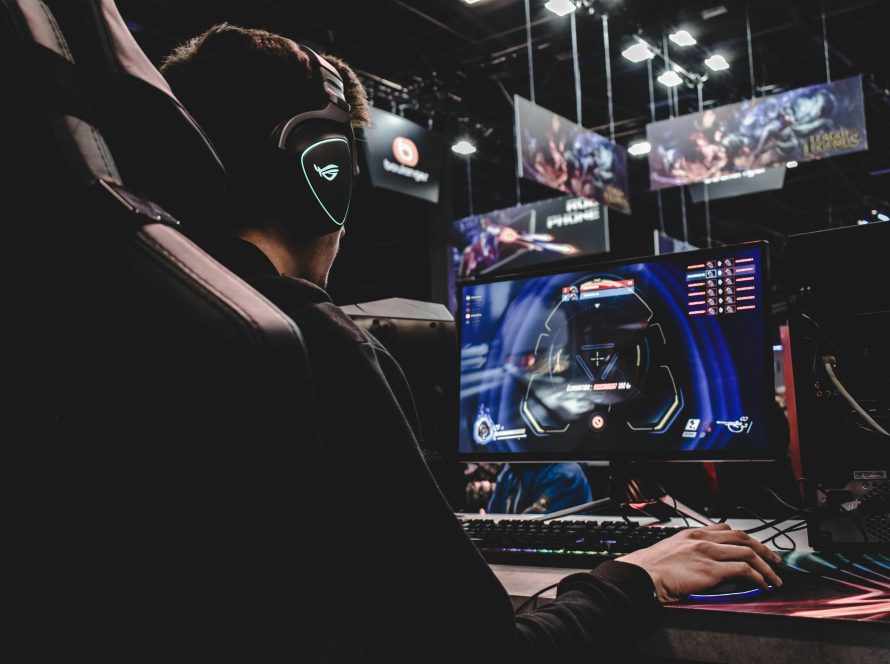The rapidly evolving world of e-sports and the corresponding field of e-sports law continue to introduce new legal questions. With technological advancements and an increasingly global presence, e-sports are now widely recognized as a legitimate branch of sports both nationally and internationally. As a result, e-sports contracts play a vital role in the gaming industry, shaped by these dynamic developments. Such contracts not only offer protection for e-sports stakeholders but also facilitate long-term club partnerships, branding, and sponsorship arrangements. Therefore, contracts between players and clubs, agreements between clubs and sponsors, insurance contracts, and many others come into play. Below, we will touch upon some of the key issues in this area.
1. Age Consideration
Age and guardianship are critical issues in contracts entered into between the parties. Today, the age of entry into e-sports clubs and academies has dropped as low as 13–15 years. Especially on the national level, certain academies provide training programs preparing players aged 13 and older for future careers. For such training and contractual arrangements with academies, careful attention must be paid to the age of the individuals involved.
2. Rights and Obligations
As e-sports law is still developing, e-sports contracts have yet to adopt a standardized structure. One of the most fundamental issues is how the responsibilities and obligations between players and clubs should be regulated. In practice, contracts often offer little room for negotiation or autonomy on the player’s part. As a result, e-sports players may be forced to accept unfair terms outside their will. It is essential that revenues generated through streaming, sponsorships, and social media activities are clearly defined in the contract. Otherwise, disputes among stakeholders may arise. In sponsorship agreements, issues such as intellectual property rights and ethical standards should be considered in light of the sector’s fast pace, and the parties’ rights and obligations should be defined clearly. Furthermore, within club and team structures, prize pool distributions, tournament earnings, salary policies, and bonuses must be concretely defined.
3. Termination and Sanctions
Player contracts are excluded from the scope of the Labour Law and are instead classified as service contracts under the Turkish Code of Obligations. These are continuous obligation contracts, meaning termination clauses may have forward-looking legal consequences. In many sports, contract termination is not clearly regulated. Termination procedures should align with fundamental principles of contract law. It is essential to define mutual termination rights between the player and the club. For example, if the club fails to pay the agreed fees, the player should have the right to terminate the contract, while the club should have the right to terminate if the player is penalized for cheating or match-fixing.
4. Confidentiality and Privacy Protection
In most cases, athletes’ privacy and protection of personal data are overlooked in contracts. A common assumption is that because news about athletes serves the public interest, their privacy is less protected. However, it is important to remember that athletes have a core private life that must be safeguarded. Clubs should strike a balance between their right to publish news and the athlete’s right to privacy. Confidentiality clauses should be included not only in contracts between clubs and players but also in sponsorship and broadcasting agreements. The athlete’s private life must be fully protected.
5. Health and Insurance
Today, almost all professional athletes benefit from insurance coverage. Given that athletes are highly prone to injuries and accidents, insurance plays a critical role. Similarly, e-sports players are exposed to both physical and mental risks during tournaments, travel, training, and bootcamps. These insurance contracts may include life insurance, permanent disability coverage, daily compensation, and treatment expense coverage. E-sports stakeholders must pay close attention to premium payments and ensure full compliance with basic health insurance requirements.
6. Regulations and National Compliance
The Turkish E-Sports Federation (TESFED) was established in 2018. Since then, it has published regulations on referees, qualifications, player licensing and registration, competitions, and disciplinary procedures. During contract drafting, all stakeholders should consider these rules, particularly when determining rights and obligations. Due to the ongoing development of TESFED, contracts must be kept up-to-date and reviewed periodically.
Evaluations and Conclusion
Given the rapid development of technology and the e-sports ecosystem, the need for legal regulation continues to increase alongside industry growth. In this context, e-sports contracts not only protect players but also safeguard the interests of clubs, sponsors, and other stakeholders. It is crucial that these contracts clearly define the rights and obligations of e-sports actors and that the contract processes are handled with care.
Considering the fast-paced changes and unique needs of the sector, detailed legal regulations are essential. Moreover, upholding ethical principles will significantly contribute to the development of the e-sports ecosystem. It is evident that contracts must be regularly reviewed and updated in line with evolving dynamics. Transparent, fair, and comprehensive contracts will be a cornerstone for building trust among stakeholders and advancing the industry.
[1] İstanbul Büyükşehir Belediyesi, “E-Spor Eğitimi”, https://spor.istanbul/ibb-spor-okullari-e-spor-egitimi/#:~:text=8%20hafta%20boyunca%20sürecek%20E,%2C%20Diyetisyen%2C%20Fizyoterapist%20tarafından%20verilecektir.&text=Eğitimimiz%2013%2D15%20yaş%20arasındaki%20çocukların%20katılımına%20açıktır., (Son Erişim Tarihi: 10.01.25)
[2] Abasova, Madina, “E-Spor Hukuku ve Sporcu Sözleşmeleri”, Hukuk ve Bilişim 3. Nesil Hukuk Dergisi, https://hukukvebilisim.org/e-spor-hukuku-ve-sporcu-sozlesmeleri/, (Son Erişim Tarihi: 10.01.25)
[3] İbrahimli, Kanan, “E-Sporda Sponsorluk Sözleşmesi”, Hukuk ve Bilim Dergisi, “https://www.hukukvebilisimdergisi.com/e-sporda-sponsorluk-sozlesmesi/, (Son Erişim Tarihi: 10.01.24)
[4] Aydos, Sadık Oğuz, “Sporcu Sözleşmesinin Feshi”, Ankara Üniversitesi Hukuk Fakültesi Dergisi, 2013, s.646, https://dergipark.org.tr/tr/pub/auhfd/issue/42421/510866, (Son Erişim Tarihi: 10.01.24)
[5] Karaarslan, Kaan, “Profesyonel Furbolcu Sözleşmelerinin Sona Ermesi”, http://www.sporhukukcusu.com/index.php/joomla/contact-component/profesyonle-futbolcu-sozlesmelerinin-sona-ermesi.html, (Son Erişim Tarihi: 10.01.24)
[6] Doğu, Hakkı Mert, “E-Spor ve E-Spor Hukuku’nda Sporcu Sözleşmeleri”, Ankara Üniversitesi Hukuk Fakültesi Dergisi, s.444, DergiPark, “https://dergipark.org.tr/tr/download/article-file/1473952, (Son Erişim Tarihi: 10.01.24)
[7] Marmara, Cihangir, “Sporcuların Sigortalanması”, SporBilim, s.975, “http://www.sporbilim.com/dosyalar/Mugla%20Bildiri%203.pdf, (Son Erişim Tarihi:10.01.24)


